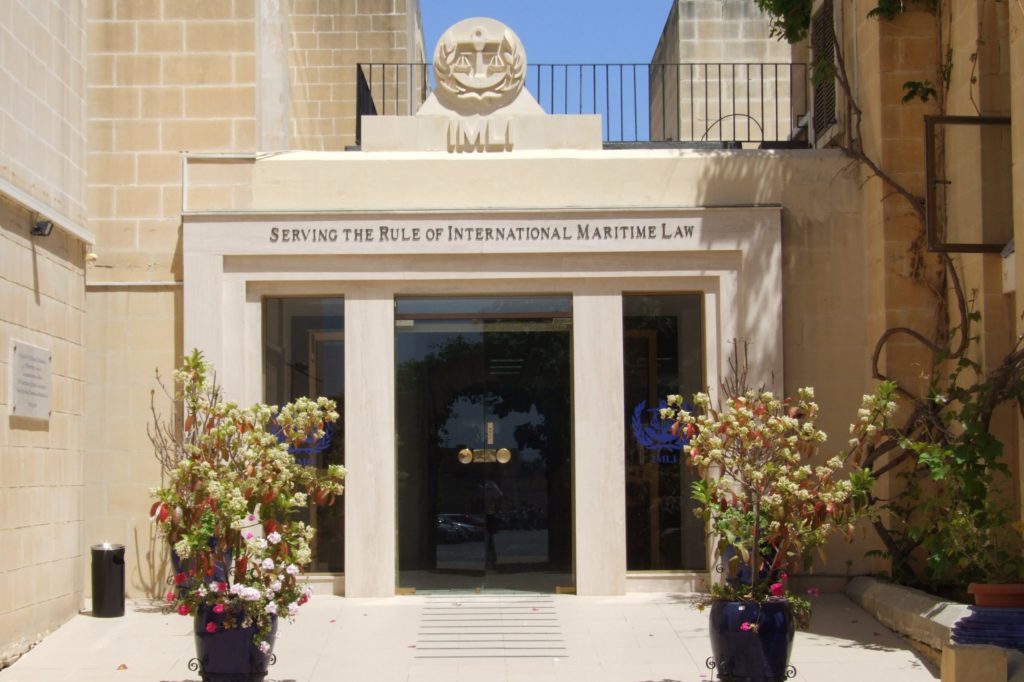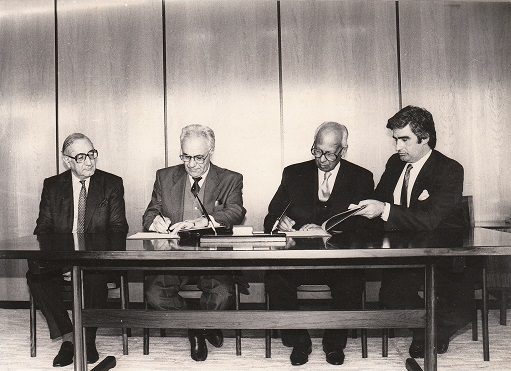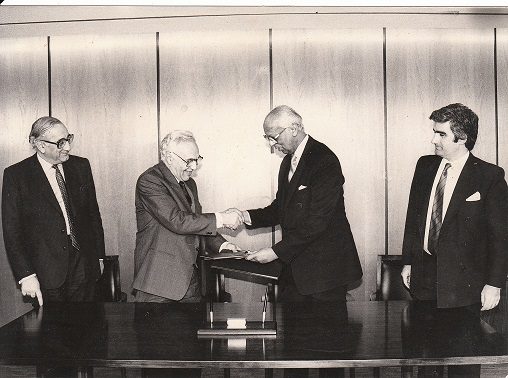IMO International Maritime Law Institute
The mission of the IMO International Maritime Law Institute is to enhance capacity-building in all States, particularly developing States, to contribute to the fulfilment of the IMO objectives thereby promoting safe, secure, environmentally sound, efficient and sustainable shipping through cooperation.
Established in Malta in 1988 under an agreement concluded between the IMO and the Government of Malta, IMLI started its first programme in 1989. Its main purpose was, and remains, to train officers, principally from developing countries, in international maritime law. Over the last three decades, IMLI’s work has contributed to the establishment of a cadre of experts in international maritime law who are able to prepare, review and advise on the implementation of maritime laws and regulations.

IMLI's main entrance
Since its inception, through its research and other appropriate post-graduate programmes and courses, the Institute has been spearheading the dissemination of knowledge and expertise in international maritime law, with special reference to IMO regulations and procedures for the safety, security and efficiency of shipping, prevention of marine pollution from ships, and protection of life at sea.
Bearing in mind that States need to have appropriate legal infrastructure which incorporates the provisions of the international instruments into national law and which has well-established procedures for implementing and enforcing the requirements of the applicable law in all relevant situations, IMLI also offers unique training and guided practice in the techniques of maritime legislation drafting. Through intensive courses and practical exercises, IMLI students are exposed to the modus operandi and methods of implementation of IMO conventions into national law and are adequately trained to develop the relevant primary legislation (codes, statutes, etc.) as well as the necessary subsidiary legislation (regulations and rules) for their application into domestic legislation.
Fully aware of the fact that ocean governance is critical to establish the safe and sustainable use of the oceans, IMLI has also enhanced its efforts to assist governments with developing the cadre of specialists necessary to shape national policies designed to achieve the Sustainable Developments Goals encapsulated in the UN 2030 Agenda for Sustainable Development and a more effective global ocean governance in the interest of present and future generations.
Since its inception in 1988, IMLI has trained close to 1,100 maritime experts from 145 States who are at the forefront in the codification and progressive development of international maritime law and are actively contributing to their countries’ development.


1988, Signing of Agreement (Archive Photos)
Many of IMLI's graduates represent their countries in international fora, such as the IMO Assembly, Council, Technical Cooperation and Legal Committees. IMLI students have achieved remarkable international positions, including Prosecutor of International Criminal Court, Head of IMO Legal Affairs Division, Legal Officers at International Seabed Authority and the Food and Agriculture Organization.
Others are leading their countries where they hold the important positions of Head of State, Ministers, Attorneys-General, Prosecutors General, and Heads of Maritime Administrations.
IMLI was the first institution within the United Nations system which mandated in its Statute that the Institute shall reserve 50 per cent of the places in its programmes for deserving female candidates.
This policy has ensured that quality education contributes to the empowerment of women in the maritime sector and has contributed to the success of nearly 500 female professionals who have received training at IMLI.